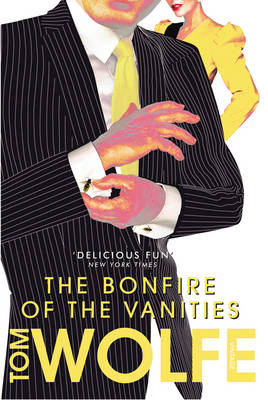Reviewed by gmcgregor on
Sherman's inclined to report what happened to the police, but Maria dissuades him. But the guilt and worry begin to consume him, especially as the incident starts to pick up attention. Forces start to converge (a shady African-American preacher/activist type, an alcoholic English reporter desperate to prove his increasingly questionable worth to his employer, a Jewish DA trying to show the overwhelming minority community he serves action on their behalf in an election year), and Sherman is charged and sent to trial, where his prosecutor, Larry Kramer, is a man who seethes at the way his life has turned out, with a modest income that keeps him from being able to conduct the affair he wants to have with a former juror.
As you can probably tell from my very low rating, I hated this book. Basically everyone in it is The Worst, and no one's having any fun. I don't mind reading about morally questionable characters as long as they're compelling, but Sherman and everyone around him is miserable. Even before the accident, Sherman is living far beyond his considerable means and he's constantly worried about how to make sure he can stay afloat. Larry, who's the second lead in the book, is a covetous self-important blowhard obsessed with his own appearance and desirability to women. I hated both of them immediately and struggled so hard to make myself read this. It got better, plot-wise, as it went...when the pieces started coming together, I could appreciate the way Wolfe showed how the dysfunction of every participant in the process created the perfect storm in which Sherman was embroiled. But that doesn't mean I liked it.
I think part of it was the overwhelming male-ness of the narrative: all the major figures, save Maria, are dudes, and even Maria never gets the story told from her point of view the way the men do. I have no particular interest in masculinity crises, and there's a lot of that here. I think I'm also going to give up on Tom Wolfe from here on out...his tics as a writer, particularly his fondness of repetitious phrases, do not jibe with me as a reader. I recognize that as a satire of a particular time and place, it has merit, but I did not like it at all. I cannot in good conscience recommend it to anyone.
Reading updates
- Started reading
- 2 October, 2017: Finished reading
- 2 October, 2017: Reviewed
